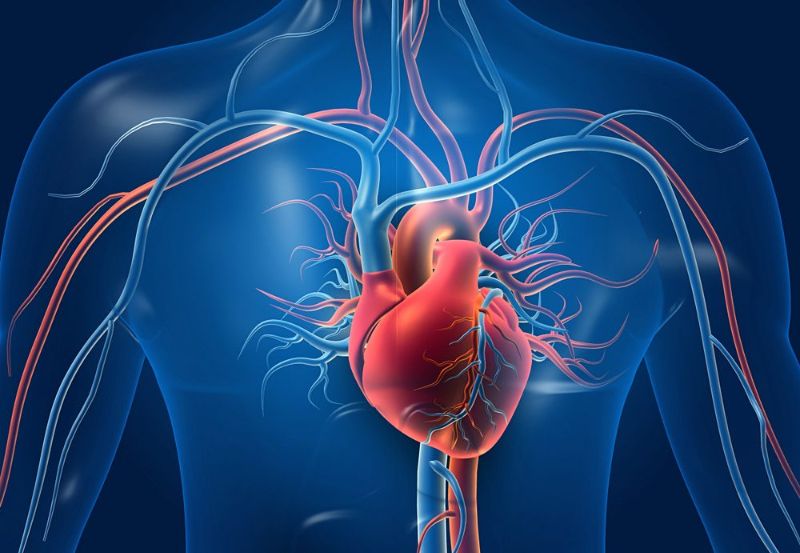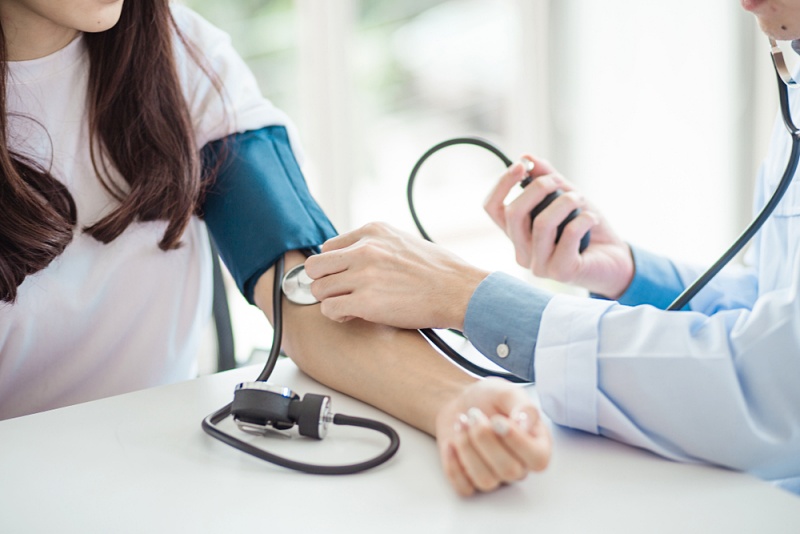How Is the Cardiovascular System Affected by Aging | Effects of Aging on the Heart
How is the cardiovascular system affected by aging? Is there a way to stop its effects? How do you protect your heart? Keep reading to find out.
RELATED: Organic Heart Disease | What Is Organic Heart Disease
How Is the Cardiovascular System Affected by Aging

How Does the Cardiovascular System Work?

The cardiovascular system is made up of your:
- heart
- arteries (blood vessels that move blood away from the heart)
- veins (blood vessels that transport blood to the heart)
- capillaries (blood vessels that connect the arteries and veins)
It's also called:
- blood-vascular system
- circulatory system
It's a system of networks that deliver nutrients and oxygen throughout your body.
Your blood lives in the blood vessels (arteries, veins, capillaries), while your heart pumps them strong enough to reach from your brain to your feet.
The heart pumps 5L of blood every minute. Blood vessels then permeate through each cell in your body to:
- deliver nutrients
- distribute oxygen
- carry out waste products
If your heart or blood vessels can't perform their normal functions, then your life may be in danger. And age, an inevitable risk factor, poses the greatest danger.
What Are the Effects of Aging on the Heart?

Cardiac aging is what you call the decline of your cardiovascular function over time.
There are several ways that aging can affect your heart.
The aging heart undergoes plenty of changes. It includes structural, functional, cellular, and molecular changes.
There are also intrinsic factors that promote aging, like oxidation and inflammation. But extrinsic factors such as lifestyle, behavior, and environment may also speed up cardiac aging.
- may weaken
- may not beat as rapidly during exercise or stressful moments
- valves may stiffen
- the chambers of your heart may grow larger as the walls thicken
Changes to your blood vessels:
- arteries may stiffen or harden, which may lead to hypertension
- the walls of your capillaries may grow thicker
- the baroreceptors that regulate your blood pressure may become less sensitive with age, causing orthostatic hypertension (which may make you dizzy)
The changes that come with aging could increase your chances of developing heart disease. Fortunately, there are things you can do to lower your risk and protect your heart.
Your heart deteriorates as you age, and an unhealthy lifestyle may also catch up to you over the years. And the culmination of your fast food runs and fatty diet could all lead to atherosclerosis.
Atherosclerosis is the build-up of plaque along the lining of your vessels. Over time, the plaque could harden and narrow the pathway in your arteries.
This could significantly limit how much oxygen- and nutrient-rich blood courses through your vessels, leading to high blood pressure or hypertension.
And hypertension is another risk factor for heart disease.
While growing age is unavoidable, atherosclerosis is preventable, and it is not inevitable with age.
Leading a heart-healthy lifestyle could keep heart problems at bay. Notwithstanding age as a risk factor, there are still many factors within our control then can keep your ticker healthy and pumping.
Why Do Older Adults Have Higher Blood Pressure?

As you age, your heart chambers, arteries, and capillaries may become stiffer. As a result, your heart has to work harder. And as it pumps harder, your blood pressure may increase.
Another possible reason older adults may have high blood pressure or hypertension is atherosclerosis.
Your heart may have to work harder to pump blood through narrow blood vessels, causing high blood pressure.
Usually, there are no warning signs of hypertension. The best way to catch it is to visit your doctor regularly or monitor your blood pressure.
If you do have hypertension, you may control it by:
- eating healthy
- eating a low-sodium diet
- cutting back on alcohol
- not smoking
- getting your eight hours of sleep
- lowering your stress levels
RELATED: Stroke vs Heart Attack | Heart Attack vs Stroke | Difference Between Stroke and Heart Attack
At What Age Should I Worry about Heart Disease?

It's never too early to worry about heart disease.
Hypertension or high blood pressure usually goes undetected. Even atherosclerosis is considered to be mostly asymptomatic. And obesity or being overweight, another risk factor, can also occur among young adults.
Other than age, other factors increase your likelihood of developing heart problems. These include an unhealthy diet, excessive alcohol consumption, smoking, and a lack of physical activity.
While older adults are at a higher risk of heart attack, age is not the only risk factor.
The main takeaway here is to understand that there are still things within your control to keep your heart healthy and lower your risk for heart disease.
Who Is Most at Risk for Heart Disease?

Risk factors for heart disease or cardiovascular include may include:
- age (men over 45, women over 55)
- family history
- stress
- poor diet (fatty foods, refined carbs may contribute you plaque build-up)
- sedentary lifestyle
- smoking, inhaling secondhand smoke
- not getting enough good sleep
- contact with toxins or hazardous materials
Some health conditions may also increase your risk, like:
- atherosclerosis
- high blood pressure
- diabetes
- high cholesterol
- chronic kidney disease (CKD)
- metabolic syndrome
- autoimmune and inflammatory diseases
- anxiety
- depression
- post-traumatic stress syndrome
- HIV/AIDS
If you have other conditions, you may want to speak to your doctor about what you can do to care for your heart. Your physician may also run some tests to check up on your cardiovascular health.
Is Heart Disease Curable?

Unfortunately, there is no cure for heart disease. However, there are many ways to prevent or stop them in their tracks.
Familiarize yourself with the risk factors and check if you relate to any of them. Most of all, make sure to see your doctor regularly once you hit your 40s.
The best way to prevent heart disease is to catch it early.
Check out this video to learn more on how cardiac aging happens:
Cardiovascular disease is the leading cause of death among Western nations. And with the growing older population, this trend may continue for up to 20 years more.
The dangerous nature of the cardiovascular disease is that old habits can accumulate and catch up to you, causing health issues down the road. That's why it's important to live a heart-healthy lifestyle and enjoy heart-healthy meals.
Heart disease prevention includes eating better, moving more, and quitting unhealthy vices, like smoking, excessive alcohol consumption.
While heart disease is not curable, it is preventable with the right lifestyle changes.
UP NEXT:
- Protect Your Heart with These 13 Natural Blood Thinners
- Stomach Problems That Affect the Heart | How Does Heart Disease Affect the Digestive System
- Can A Heart Attack Cause Brain Damage | Brain Damage From Heart Attack
Join the healthy living conversation with us on Facebook, Instagram, and Pinterest. We want to hear your story—let’s connect via these channels. Find our community online and join the healthy living revolution today!
Trending
Best Multivitamin for Men | Top 10 Best Multivitamins for Men 2022
Tongue Color | 7 Scary Tongue Color Meanings
Get Updates
SIGN UP FOR OUR NEWSLETTER TODAY

Coming to Terms With Turning 50

Perks at 50 | Senior Discounts You Can Enjoy When You Turn 50

Related

Coming to Terms With Turning 50

